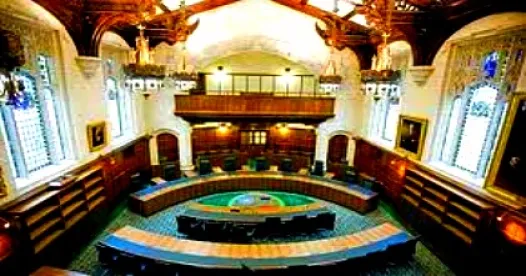In July 2019, the UK Supreme Court (UKSC) handed down a judgment in a case that concerned the extent and operation of the principle of open justice (Cape v Dring). The question before the UKSC was how much of the written material placed before the court in a civil action should be accessible to those who are not parties to the proceedings and how it should be made accessible to them.
One of major draws of litigating before the English Courts is its principle of open justice. It is vital to the rule of law and the strength of the English legal system that there is transparency in its legal process: hearings are, in almost every case, public. In 1924, Lord Hewart CJ declared “… it is not merely of some importance but is of fundamental importance that justice should not only be done, but should manifestly and undoubtedly be seen to be done”. In Cape (see specifically, paragraphs 41-51 inclusive), the UKSC called for better access to the documents before the Court in the interests of open justice, noting that the way in which hearings took place had evolved considerably since Lord Hewart’s day.
Presently, documents that have been referenced in open court become accessible (on application) to non-parties, but only at that point. Even then, there are often basic issues which hamper that access (including the availability of copies, cost and the time elapsed since the relevant hearing). Non-parties can also access statements of case and orders from the Court for a small fee, and they can apply to Court (without notice to the parties) for copies of certain other documents such as witness statements, expert reports, skeleton arguments and correspondence between the parties and the Court. Certainly, once documents have been relied on in a public hearing, there is a presumption towards their provision to interested parties.
Following a recent report, the Civil Procedure Rule Committee has issued a consultation regarding an amendment to the relevant part of the Civil Procedure Rules, Rule 5.4. This consultation forms part of a broader agenda set by the recently appointed Lady Chief Justice targeting greater transparency in Court processes. The proposed amendment would (absent a court order to the contrary) require parties to provide to an attending non-party at the start of a hearing:
- its skeleton argument,
- witness statements (excluding exhibits) on which it relies; and
- expert reports (except medical reports or where a rule or practice direction provides otherwise).
This consultation is open until April 8, 2024, but already there are several issues that the London market has identified as needing further consideration. The proposals, if enacted, would inevitably lead to more documents entering the public domain. In addition to the administrative burden both on solicitors and the Court, and the extra costs that compliance might entail, a party might also be unwilling to expose its witnesses to potential public scrutiny. The changes may also create a public track record for expert witnesses as a matter of course. While parties can apply pre-emptively to Court to retain the privacy and confidentiality of certain filings and documents, they would need to incur the costs of doing so (and of course have good grounds, where the presumption would be for provision). Another concern is the impact of Generative AI within the legal system; if enacted, these proposals will likely significantly increase the data pool on which these tools can be trained, which might be of long-lasting impact to the way solicitors and barristers operate. A party wary of any of these issues might choose arbitration instead, and the comfort of its associated confidentiality.




 />i
/>i

